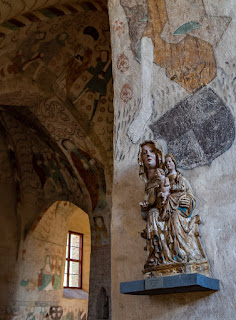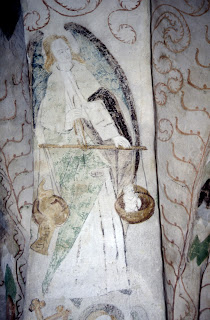The sense of logic

St Anne. Photo Anu Hätinen The universe does not have to make sense to us. It is not ultimately necessary that we can understand the logic of being. Moreover, being does not ultimately need to have a logic whatsoever. Yet that is what we experience: we encounter the world as something that has a logic, as a series of incidents that make sense, almost without exception. When that is not the case, we shout: "This does not make sense!" And we feel distressed. We stubbornly expect that being makes sense. Obviously, this conviction is right. Our life does not work without a meaning. My words here, these letters on the screen, are designed to convey a meaning. They are written with the intention to be intelligible, not arbitrarily (like this: sodkhg wkreesi lasit). If the reader should find my point flawed, the criterion for that would be the reason, rationality that we both appeal to. No one truly believes in the mere chance. On the contrary, it is amazing that the origin of the




